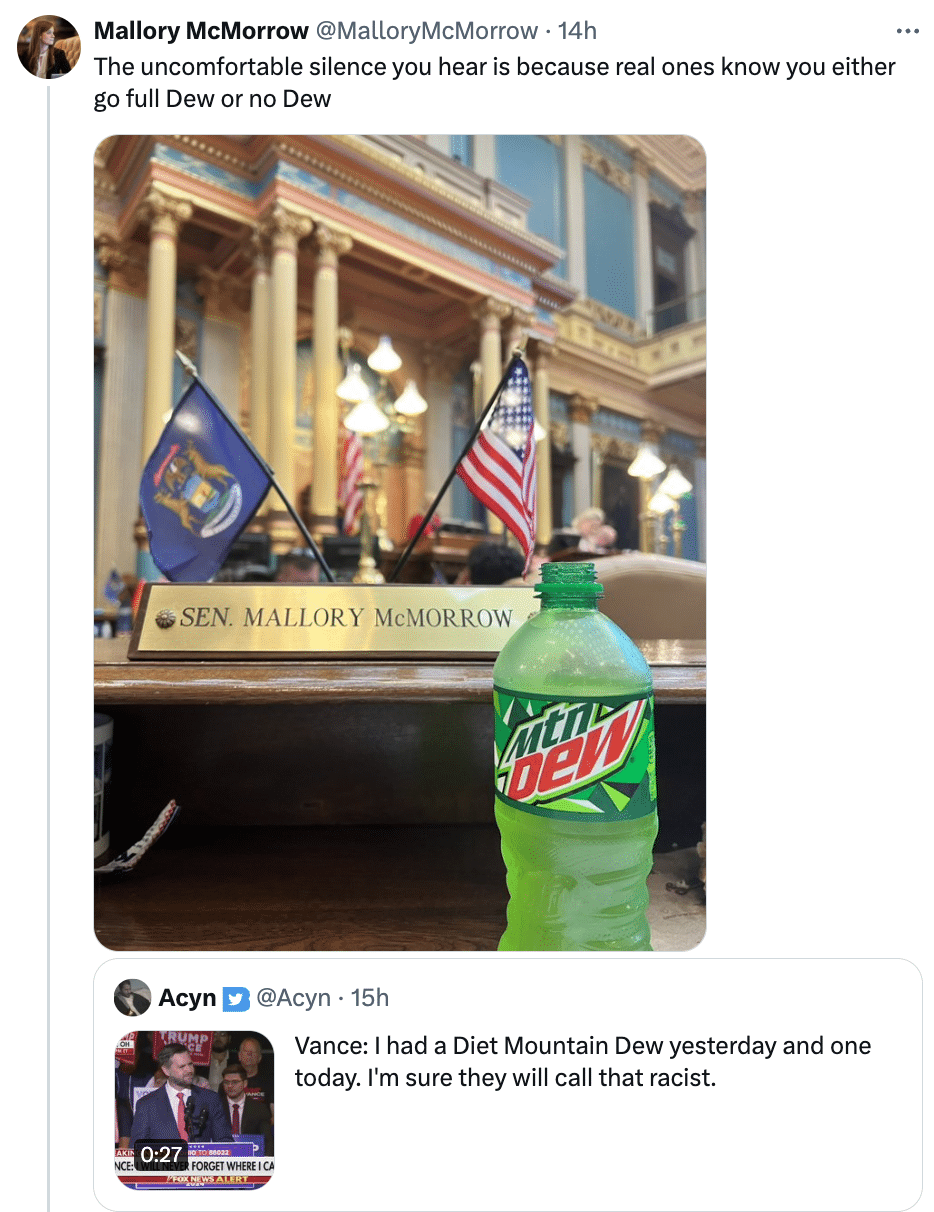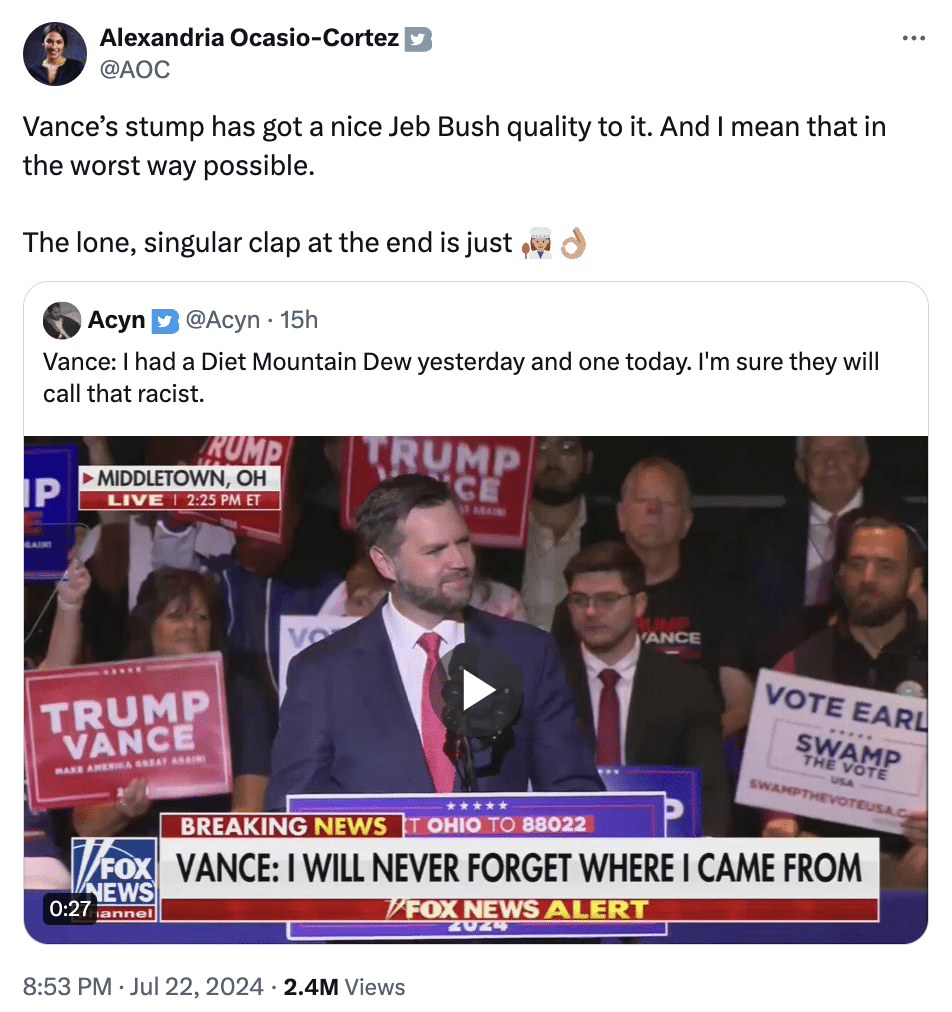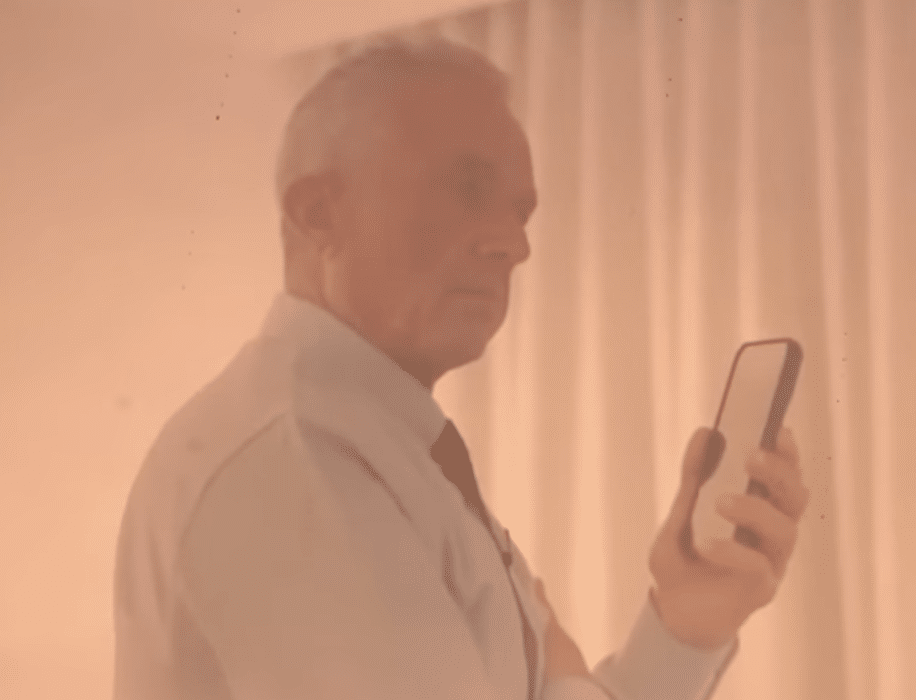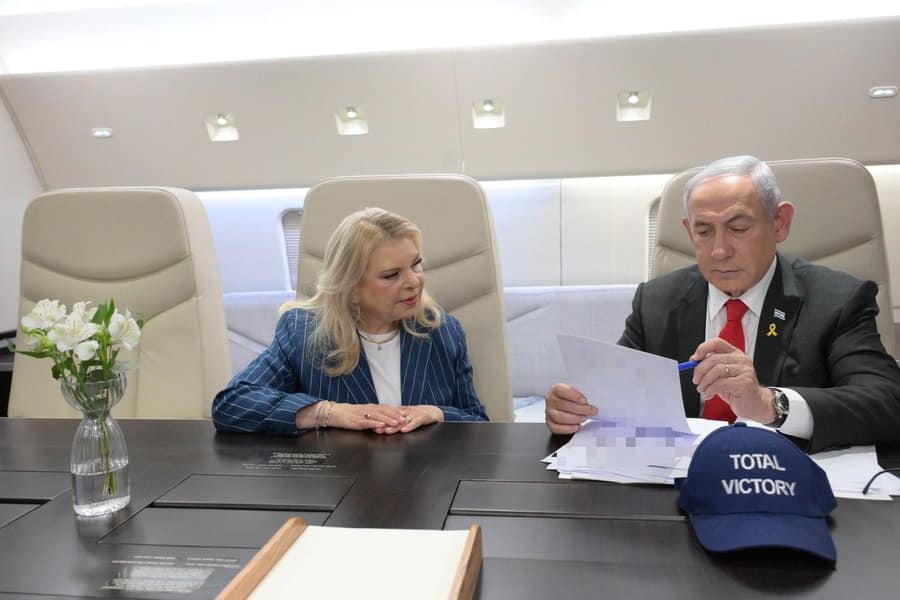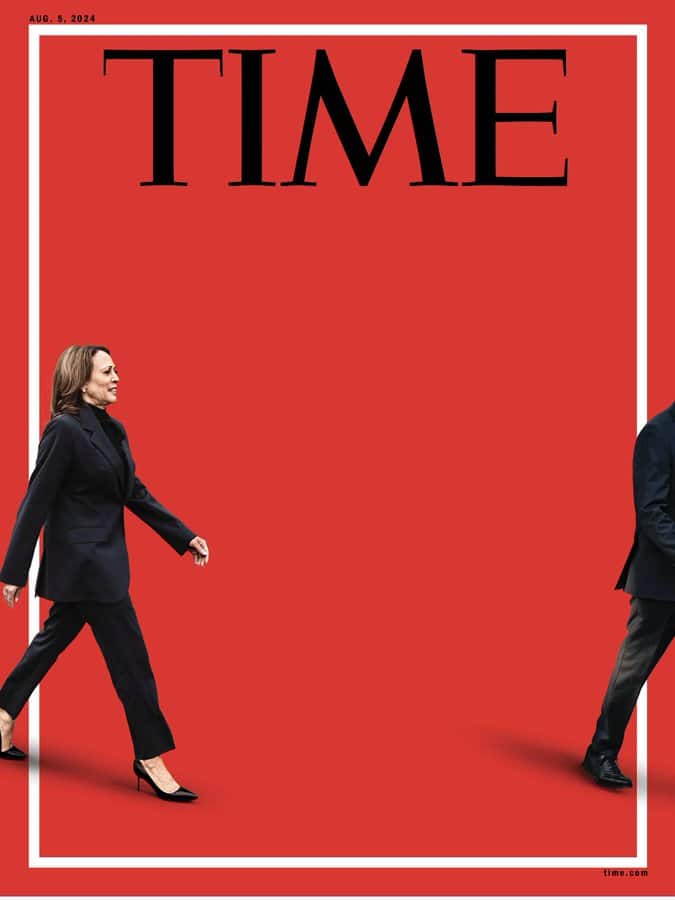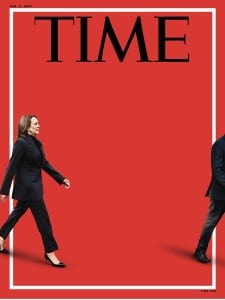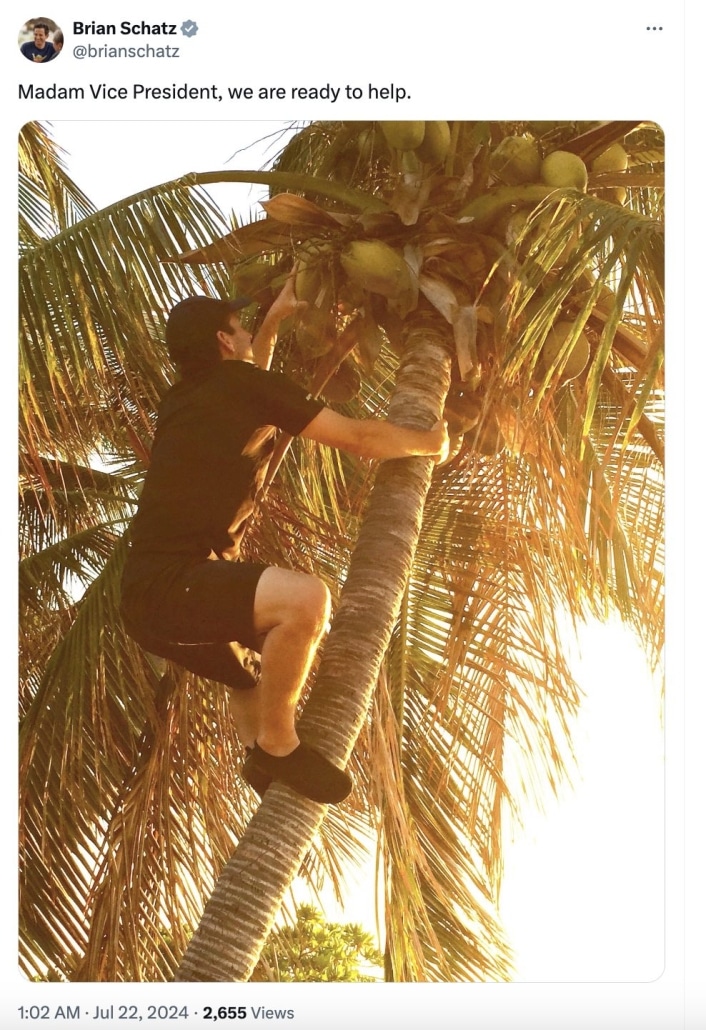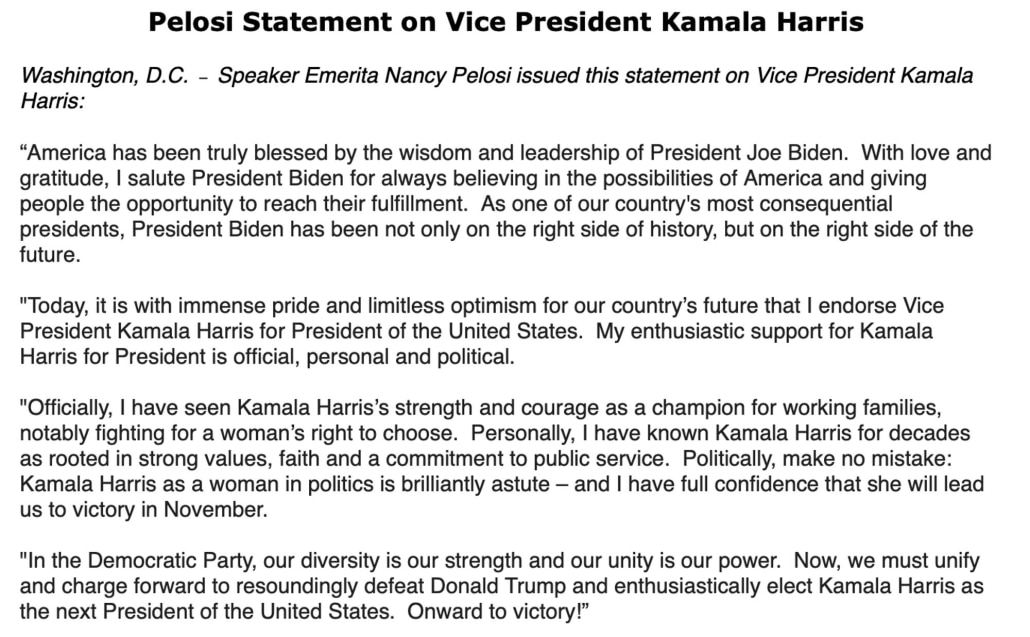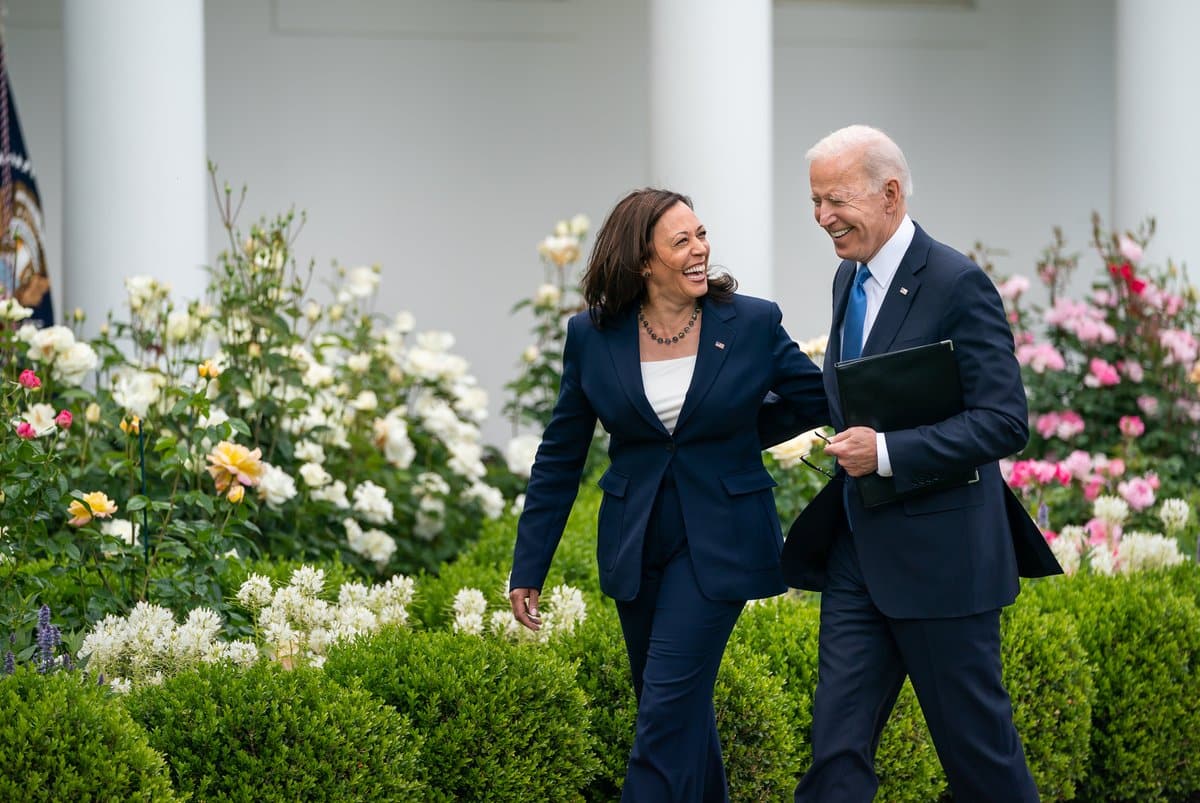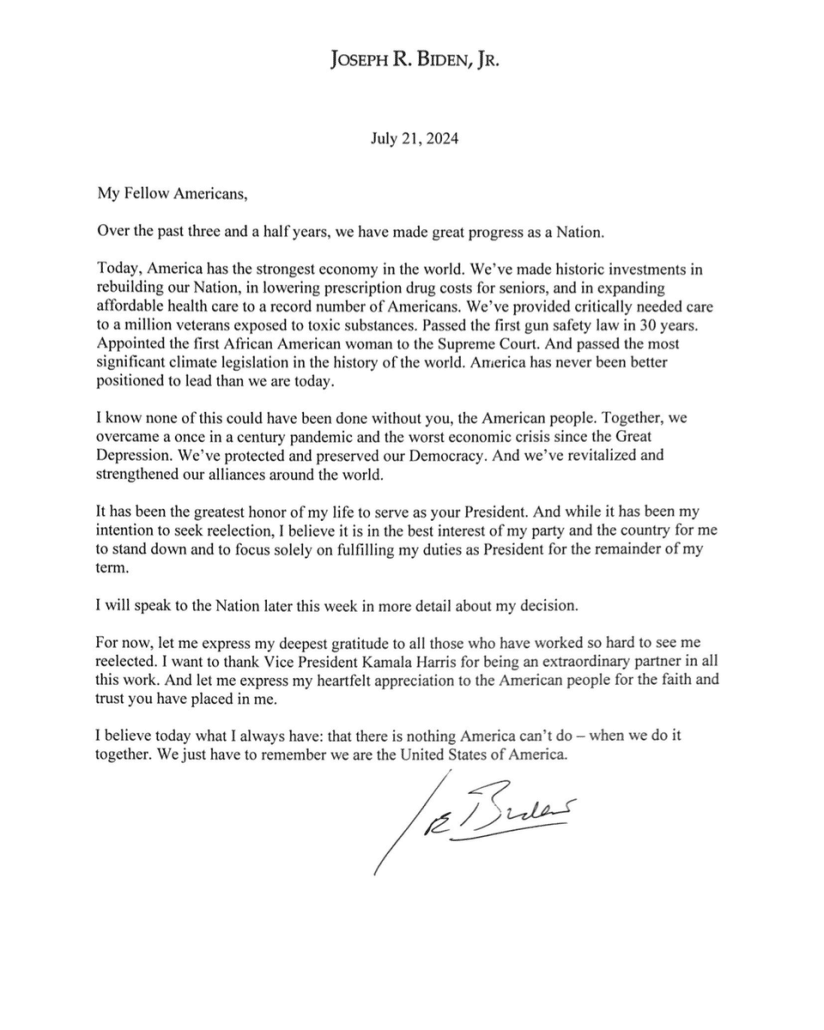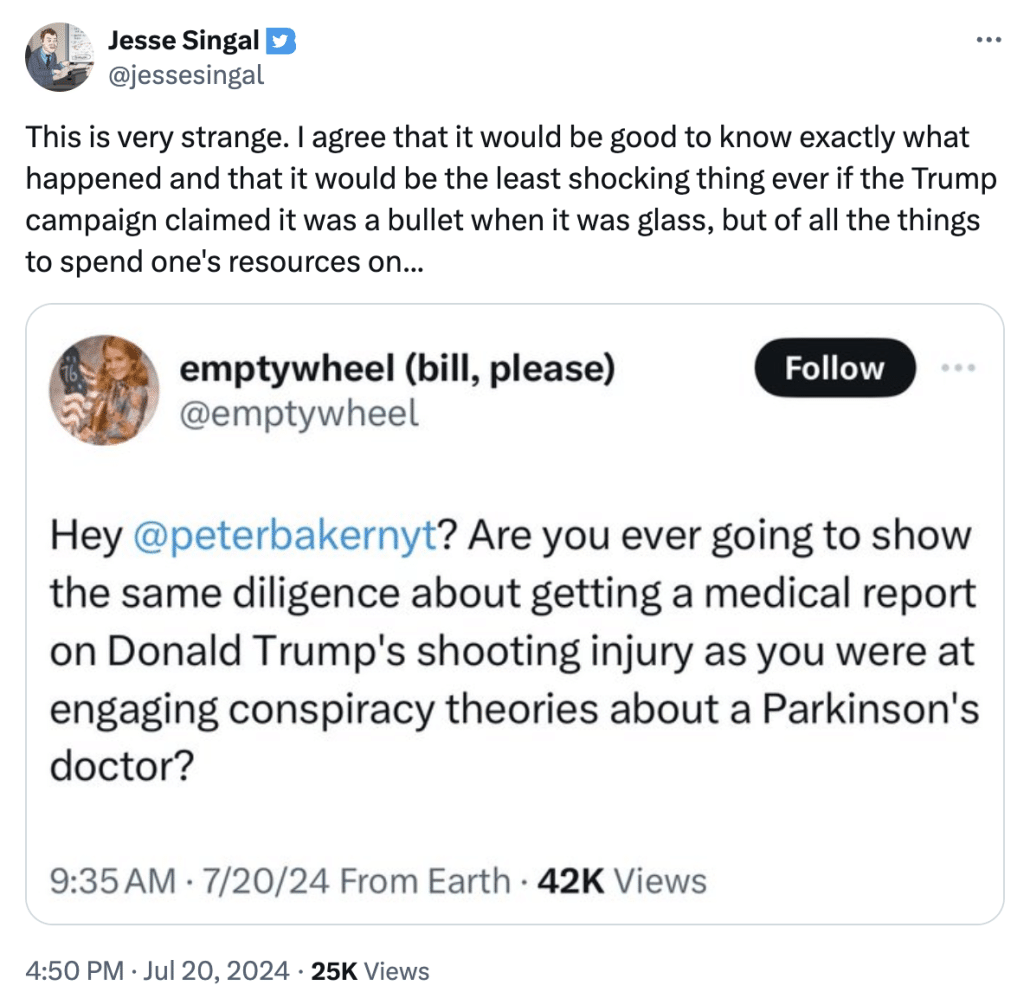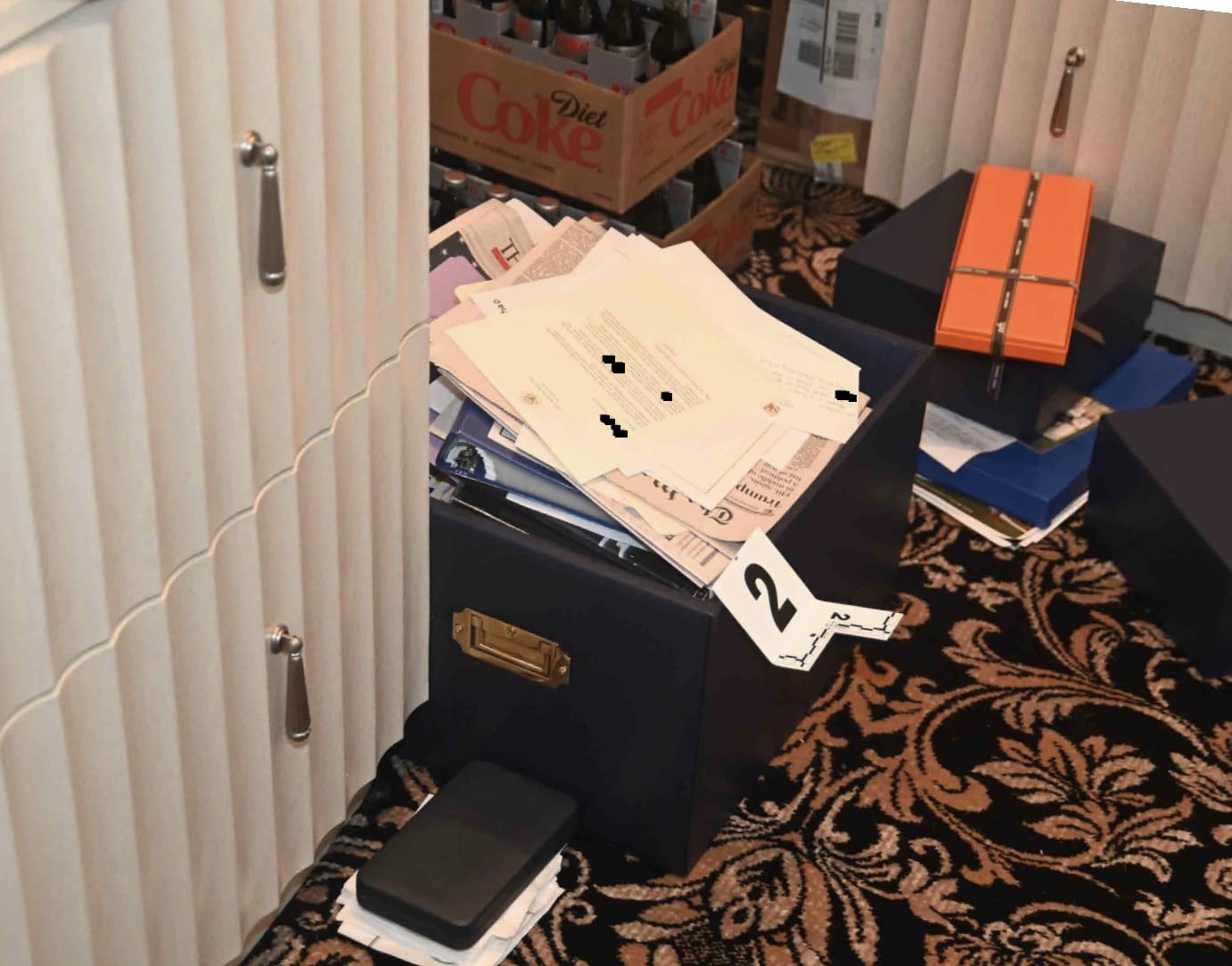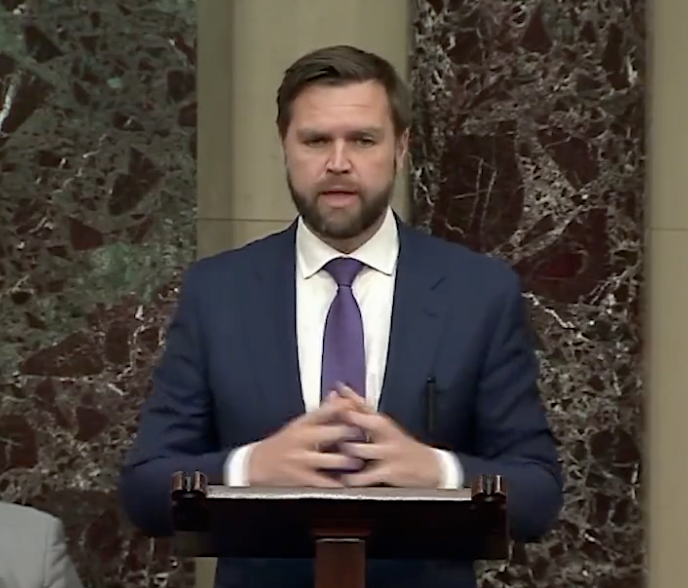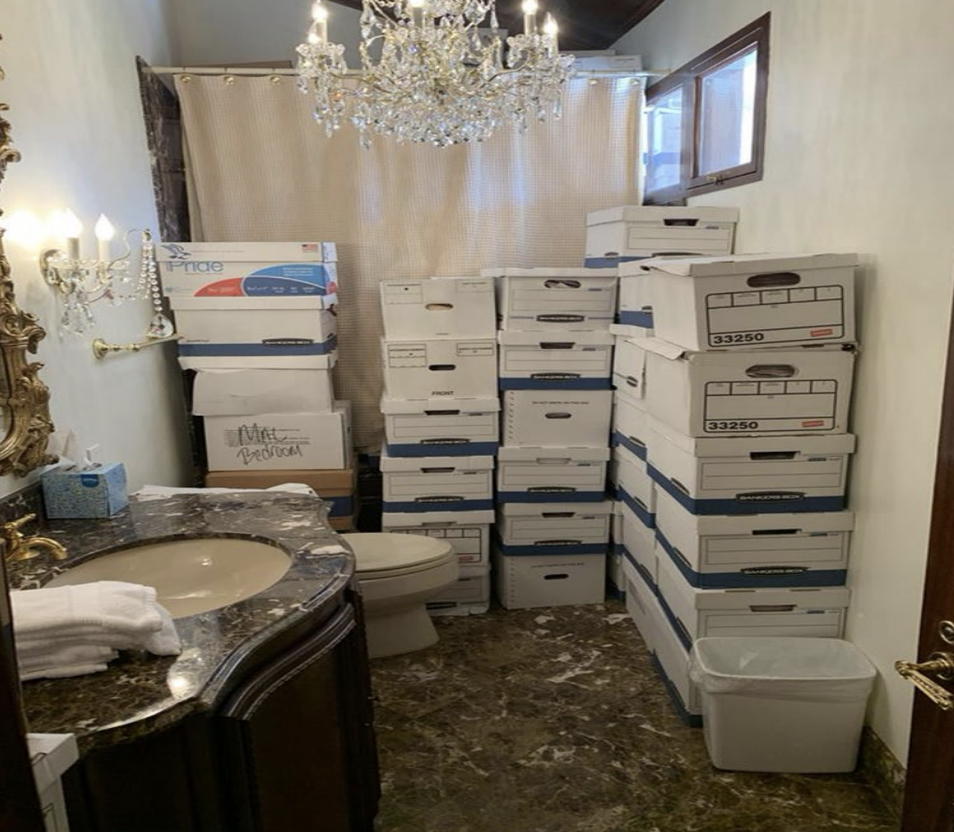Fraudulent Failson Judgement: JD Vance “Ain’t From Here”
As always with DC’s gossip press, they exercise almost none of the scrutiny with Donald Trump that they do with others.
One recent example comes in the treatment of Joe Biden and Trump’s sons’ involvement in campaign decision-making.
There was a whole flood of stories because Hunter Biden was part of his father’s decision on whether to stay in the race, as he has been involved in past such decisions.
Hunter Biden has joined meetings with President Joe Biden and his top aides since his father returned to the White House from Camp David, Maryland, on Monday evening, according to four people familiar with the matter.
The president’s son has also been talking to senior White House staff members, these people said.
While he is regularly at the White House residence and events, it is unusual for Hunter Biden to be in and around meetings his father is having with his team, these people said. They said the president’s aides were struck by his presence during their discussions.
A federal jury in Delaware found Hunter Biden guilty last month on gun-related charges. He remains under indictment accused of tax-related felonies, to which he has pleaded not guilty. Shortly after the jury found him guilty, he returned to his home in California.
One of the people familiar with the matter said Hunter Biden has been closely advising his father since the family gathered over the weekend at Camp David after Thursday’s debate. This person said Hunter Biden has “popped into” a couple of meetings and phone calls the president has had with some of his advisers.
Another person familiar with the matter said the reaction from some senior White House staff members has been, “What the hell is happening?”
The insinuation, of course, is that no convicted felon should be involved in such decisions.
The gossip press exhibited no such qualms that Paul Manafort — whose tax fraud was an order of magnitude greater than what Hunter is accused of, and who was hiding the foreign clients with whom he was sharing campaign strategy — was back advising Trump.
Crazier still, the gossip press seems to have little awareness that since May 30, there’s always a convicted felon involved in strategy meetings involving Trump.
I’m more interested in the double standard regarding the involvement of Trump’s sons in campaign decision-making.
Sure, in the Mueller investigation, Don Jr avoided charges for accepting campaign help from the Agalarovs because Mueller rightly figured the failson could argue he had no idea you shouldn’t do that. But both sons have been implicated in their Daddy’s fraud, first when they misused charity donations to benefit Pops, and then when they fiddled with real estate valuations.
Hunter Biden undoubtedly sold on his father’s influence — though he has not been criminally charged with doing so — but Trump’s sons have been involved in fraudulent claims about their father so he’d get that influence. They’re just conmen like their Daddy, selling the brand.
And on top of the fact that Don Jr has long been targeted by foreign spies and Neo-Nazis, he’s painfully stupid. As Michael Cohen testified, “Mr. Trump had frequently told me and others that his son Don Jr. had the worst judgment of anyone in the world.”
Yet, in all the reviews (or, in some cases, shameless beat sweeteners) of the sons’ involvement in Trump’s recent decisions, there has been no question about whether their cooperation in Dad’s fraud or their poor judgment should disqualify them from such a role.
That’s particularly true given their decisive role in picking JD Vance. The stories describe how the sons, especially Don Jr, were able to convince their Dad to ignore the counsel of actual political consultants like Kellyanne Conway and instead pick an inexperienced extremist who once called Trump America’s Hitler as his running mate.
With the clock ticking to the Republican National Convention last week, Donald Trump met privately to discuss his running mate search with two of his closest advisers: his sons.
The conversation quickly turned tense when the former president indicated that he was leaning toward Doug Burgum, until recently the largely unknown governor of North Dakota — but someone whose low-maintenance, no-drama personality would never threaten to outshine Trump.
That’s when Donald Trump Jr. and Eric Trump chimed in.
“Don Jr. and Eric went bats— crazy: ‘Why would you do something so stupid? He offers us nothing,’” a longtime Republican operative familiar with the discussion told NBC News.
“They were basically all like ‘JD, JD, JD,’” the operative said.
Trump ratified his sons’ recommendation here Monday, selecting Sen. JD Vance of Ohio as his vice presidential candidate. Trump called Vance with the news 20 minutes before announcing it on social media, a source familiar with the call said.
In choosing Vance, Trump made a different calculation than he did in 2016 and leaned fully into his MAGA base. Back then, he looked to his daughter and her husband — the more establishment-friendly Ivanka Trump and Jared Kushner — for strategic advice. This time, his red meat-throwing sons have a more central role. And instead of going with a longtime traditional Republican like Mike Pence, Trump chose the MAGA warrior Vance.
Apparently, Don Jr — he of the poor judgment — was impressed by Hillbilly Elegy, a memoir that treats Trump’s people as deplorables.
The eldest Trump son, who had been a fan of “Hillbilly Elegy” before the campaign, had come to like Vance personally, and the two developed a close friendship after Vance won his Senate race.
And so, in spite of the fact that JD Vance actually underperformed Republicans in his Senate race, Trump was convinced that Peter Thiel’s errand-boy will help him win the Rust Belt.
Thanks to Vice President Harris’ accession to the candidacy, media outlets are stumbling over each other to invite Andy Beshear on to explain how furious he is that Vance monetized calling people from Eastern Kentucky, “lazy.”
I want the American people to know what a Kentuckian is, what they look like, because — let me just tell you — that JD Vance ain’t from here. The nerve that he has to call the people of Kentucky, of Eastern Kentucky, lazy.
Listen, these are the hard-working coal miners that powered the industrial revolution, that created the strongest middle class the world has ever seen, powered us through two World Wars. We should be thanking them, not calling them lazy.
And in his first solo appearance, JD Vance attempted to make a joke about Diet Mountain Dew, which flopped.
Which has led superstars like AOC …
… and Mallory McMorrow to make fun of him.
There are already reports that, in light of Biden ceding the ticket to Kamala, the campaign may be regretting that decision.
Even the selection of Ohio’s Senator J. D. Vance as Trump’s running mate, campaign officials acknowledged, was something of a luxury meant to run up margins with the base in a blowout rather than persuade swing voters in a nail-biter.
Even in Pennsylvania or Michigan, JD’s extremism, especially on choice, will be a liability. And only a spoiled brat like Don Jr would have missed that Hillbilly Elegy insulted Trump’s deplorables, it didn’t celebrate them.
I suppose I should take solace from the fact that NYT is wasting beat sweeteners pretending that Don Jr is anything but a less effective conman than his Daddy.
By all means let Don Jr steer Daddy into stupid decisions.
It just gives smart girls one more thing to laugh at.

